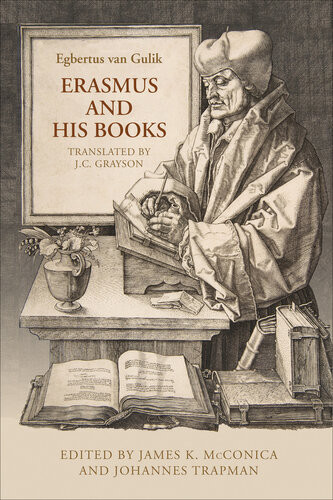

Most ebook files are in PDF format, so you can easily read them using various software such as Foxit Reader or directly on the Google Chrome browser.
Some ebook files are released by publishers in other formats such as .awz, .mobi, .epub, .fb2, etc. You may need to install specific software to read these formats on mobile/PC, such as Calibre.
Please read the tutorial at this link: https://ebookbell.com/faq
We offer FREE conversion to the popular formats you request; however, this may take some time. Therefore, right after payment, please email us, and we will try to provide the service as quickly as possible.
For some exceptional file formats or broken links (if any), please refrain from opening any disputes. Instead, email us first, and we will try to assist within a maximum of 6 hours.
EbookBell Team

5.0
18 reviewsWhat became of Erasmus’ books? The most famous scholar of his day died in peaceful prosperity and in the company of celebrated and responsible friends. His zeal for useful books was insatiable. Indeed, he had taken care to insure that after his death they would pass to an appreciative noble owner, yet after his death their fate was unknown.
Erasmus and His Books provides the most comprehensive evidence available about the books of Erasmus of Rotterdam – the books he owned and his attitude towards them, when and how he acquired them, how he housed, used, and cared for them, and how, from time to time, he disposed of them.
Part 1 details the formation, growth, scope, and arrangement of Erasmus’ library and opens the door to a new understanding of the more intimate side of his daily life as a scholar at home with his books, friends, publishers, and booksellers.
Part 2 presents a carefully annotated catalogue, the Versandliste, of the more than 400 books in Erasmus’ possession at one point. Drawing upon his command of bibliographical data and his extensive knowledge of Erasmus’ correspondence and related records Egbertus van Gulik proposes as precise an identification of each of the titles as the evidence will allow.
Van Gulik’s insightful discoveries tell us what can be known of books in Erasmus’ working library and how he used them and will be of interest to students of the northern Renaissance, the history of the book, and the history of learning.